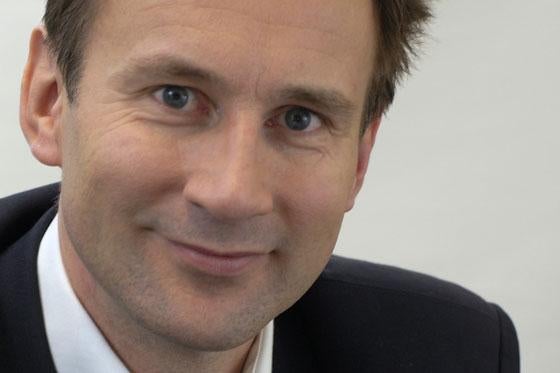
Conservative shadow culture secretary Jeremy Hunt today signalled the Tories’ intention to torpedo plans for Independently Funded News Consortia (IFNC) to replace ITV news in the British regions.
The Government has already said it favours using £130m of BBC licence fee money allocated to pay for digital switch-over to subsidise regional public service broadcasting outside the BBC. And this summer three pilot projects are set to get underway in the Borders region of the UK, Scotland and Wales.
But today Jeremy Hunt said: “Using the licence fee to prop up regional news simply casts a failed regional TV model in aspic. It would actively prevent the emergence of new, local media models, making broadcasters focus their energies on satisfying politicians not reaching viewers.”
A variety of coalitions including ITN, former ITV staff, independent production companies and regional newspaper publishers are currently heavily involved in seeking to win contracts for the three IFNC pilot schemes. The contracts are due to be finalised in May.
Hunt today warned them that if the Conservatives win the General Election, expected by many to be on 6 May, their efforts could have been in vain.
He said: “Let me be clear. We do not support these provisions in the Digital Economy Bill. And we do not support the pilot schemes.
“The contracts are not due to be signed until May. Anyone looking to sign one should understand that we’ll do all we can to legally unpick them if David Cameron enters Number 10. And if they haven’t been signed, we won’t be doing so.
“This is because we want to see the emergence of a radically different, improved and forward-looking local media sector. Not just local TV, where we are about the only major developed country not to have proper city-based TV franchises. But profitable, hungry and ambitious local radio, local newspapers and local websites as well.”
Hunt says the Conservative vision for regional news involves “sweeping away the cross-media ownership rules at a local level”.
He said: “This will allow local media operators to follow viewers, as they increasingly switch platform at a moment’s notice, whether from TV to radio to mobile or to online. It will allow a consistent and strong new offering to advertisers: go with us and we will reach consumers in a defined geographical area whichever platform they use.”
He added: “We will not stop there. The cost of TV news production has fallen dramatically thanks to changes in technology. But we will seek to lower the costs for new entrants to local TV even further by creating space for a new national network to provide prime time viewing for local TV affiliates.
“This means that local TV operators will only have to fund a few hours of local news daily, not expensive 24 hour news. It will also mean – critically – that as in America advertising on local TV franchises can be sold nationally as well as locally.”
Hunt also signalled that the Conservatives would seek to curb the BBC website saying “the development of online only services and tools by our public service broadcasters, as envisaged by the Digital Economy Bill, will be the biggest possible deterrent to private sector investment in innovation in the online space”. He added: ‘The possibility of a British Google is killed stone dead.”
Email pged@pressgazette.co.uk to point out mistakes, provide story tips or send in a letter for publication on our "Letters Page" blog

